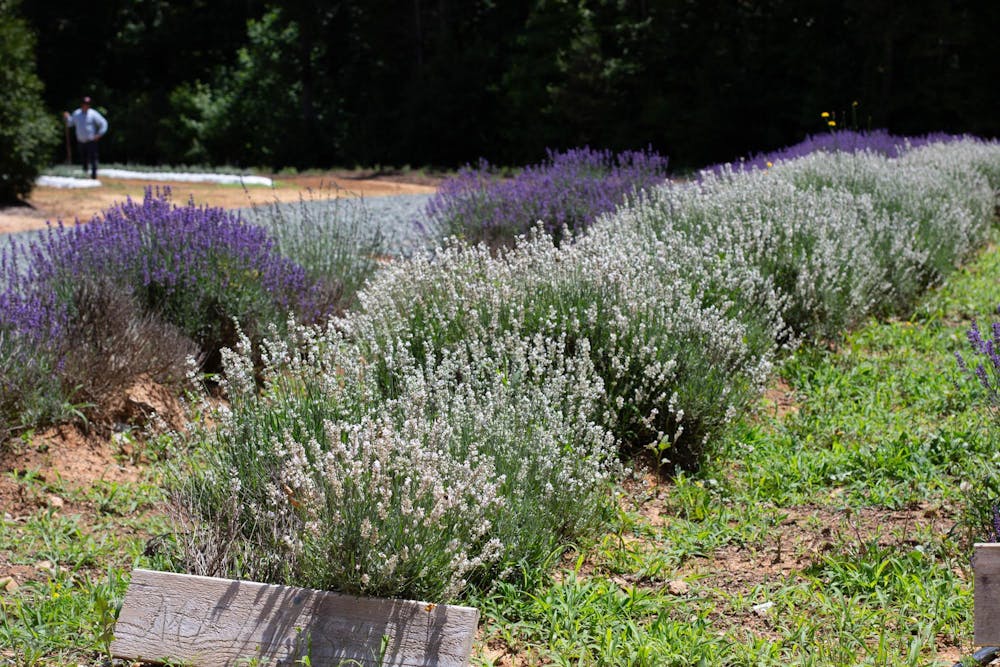Arriving at Lavender Oaks Farm, visitors might think they have stumbled upon a Hallmark movie set — the white barn, string lights and remarkable abundance of pollinators are just waiting for their small town heroine.
The family-owned farm first opened in 2015 but the idea was planted in owner Karen Macdonald’s mind on a trip to Europe in 1985, she said.
"I saw all the lavender fields and it just stayed with me. I went to a place just north of Marseille in the south of France and there was a couple there who had a lavender farm, and she was actually cooking a lavender lunch," Macdonald said. "And that was the first time I found out that you could actually eat lavender and learned all about the many different health benefits for us."
The idea of owning a lavender farm remained dormant for many years until it finally started to grow into a reality around 2013 when Macdonald joined the U.S. Lavender Growers Association and drew up a business plan. Over a dinner of lavender chicken with her husband and business partner, Robert Macdonald, the two finalized the plan, and Lavender Oaks Farm was born.
The next year or so was spent preparing the land and building the farm. Lavender is not traditionally grown in North Carolina, so the Macdonalds had to experiment with different farming practices.
First, they dug deep into the North Carolina clay soil to allow the lavender room to grow. The roots extend 3-4 feet deep into the soil, depending on the variety. Then, they laid down some compost topsoil to get a preferable pH of 6.5-7, and planted a cover crop of clover to build up nitrogen levels. Finally, a small cutting of Washington-grown lavender was placed into the field rows.
The Macdonalds also planted cascade hops, a plant used in beer brewing. They do not have any concrete plans to build a brewery on the farm yet, but it is something the couple is looking forward to in the future. For now, they usually have some local brew masters harvest the hops and make award-winning limited edition beers with them.
While some lavender plants in Mediterranean climates can last 20 years or longer, North Carolina-grown lavender needs to be replanted every five to six years. This year, Lavender Oaks Farm is working on replanting some of their lavender fields. Because of this, their U-PICK program, where visitors could pay to cut their own lavender, is reduced for this season and only available to those that have already purchased tickets.
“We’re really sorry about that,” Karen Macdonald said, “But at the same time, we are a lavender farm first above everything. Our goal is to continue to provide a lot of lavender to this area.”



